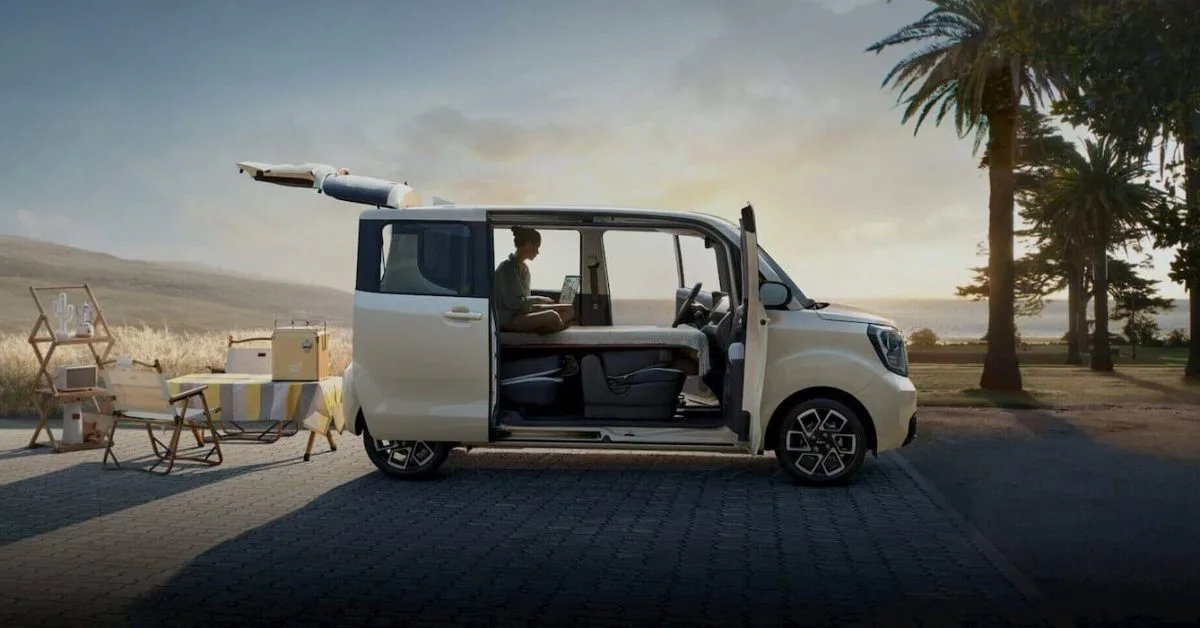Kia launches the 2025 Ray EV starting under $21,000
Kia launches the 2025 Ray EV starting under $21,000

Kia launches the 2025 Ray EV starting under $21,000

Kia officially launched the 2025 Ray EV in Korea with the same low starting price of under $21,000. However, the new model year gains additional features. With incentives, the entry-level electric car can be bought for as little as $15,000 (20 million won).
The “New Kia Ray” was reborn as an entry-level EV last year. After opening pre-orders last August, starting at around $20,500 (27.35 million won), the Kia Ray EV secured over 6,000 reservations in less than a month.
120ish miles range is more than enough for majority of us drivers despite what people think. Yes long trip will require recharge (which will be quick with tiny battery) or a second car.
This is the near term EV future we should strive for vs expensive, heavy, and environmentally painful 300+ mi SUV and truck.
Alternative is PHEV+range extender like that byd truck
As someone who drove an original fiat 500e with a similar range, I can assure you this is not enough battery for anywhere but the market it’s designed for (South Korea). You will eat through that “best estimate” of 120 miles in a day’s worth of driving, especially with additional passengers and the AC running.
The average US daily drive is less than 40 miles. Accounting for outliers and a margin, let's conservatively say 60 miles. That's still probably more than most average commutes.
That's half the best case rated mileage, which is for sure more than the "realistic" mileage with a full vehicle and A/C running. There's no way that would reduce it by half, even from the best case rating.
It's fine for some. I've been driving my Leaf with 90 miles range for eight years and haven't needed more. It's a daily commuter car.
But I'm lucky enough to have two cars in the family.
How many miles a day did it actually get?
It was found recently that most trips were less than three miles, with only 2% of all trips made are more than 50 miles.
That number is a little misleading as it counts every stop as a "new trip." I could leave my house and drive 60 miles, stopping every 10 minutes, and they'd count that as 20 trips of 3 miles or less. Meanwhile a car with a 120 mile range probably wouldn't have enough juice to make it back home depending on how far away my last stop is from the house.
That's because people leave their house an insane number of times to go buy one thing at the store and come back. I swear my neighbors leave the house and come home again 10-15 times per day.
Obviously people often don't drive very far for work or shopping, but many do maybe every weekend or once or twice per month take a longer trip to visit family or for leisure.
The car needs to be able to handle that, without being a huge pain to have to charge all the time.
The idea that 90% of trips are short is a moronic argument for selling EV with small batteries, unless people have multiple cars, which most people don't unless they need to, and even then short range can be a problem, because dependency on the cars, means that both cars need to be able to fulfill the required tasks.
Edit:
Funny how this is downvoted, when mostly everybody agree the FIAT 500 sell badly because it has too little range for the price.
Even if only a few percent are short trips, it's a pain to have to charge multiple times on a single trip occasionally, like once per week.
Even for the 300+mi vehicles we should be striving for sedans and wagons, not SUVs and trucks. Less weight and height means a better combination of handling and ride quality. There's a good reason Mercedes charges you more for the S-Class sedan than the bigger, heavier GLS-Class SUV. The former is optimized for luxury, the latter they market as the "S-Class of SUVs", but really, it's optimized for size. This is despite the fact that usually there's a "SUV tax". SUVs just cost more than their equivalent sedans and wagons.
This is where you're wrong.
Charging is not linear. EV's battery only fast charging to about 80%, after that it would halt to a crawl. It would take way less time to charge a 60kWh battery from 20% to 70% (50% = 30kWh) than it would take to charge a 30kWh battery from 0% to 100%.
That's not enough to make it to the next major city over in some parts of the US ; sure for a daily driver commute vehicle with a charger at each end that's great, but if you have to leave for any reason (such as say, a natural disaster like a hurricane that just hit), you're fucked. Having to own multiple vehicles isn't a solution, or an option for many.
Old used truck and a BEV is just great.
@lurker8008 @MyOpinion Mazda offers a series hybrid PHEV+range extender just not ever in Canada. I had a hard time sourcing new winter tires for my Fit because there is no Canadian market for small tires anymore.